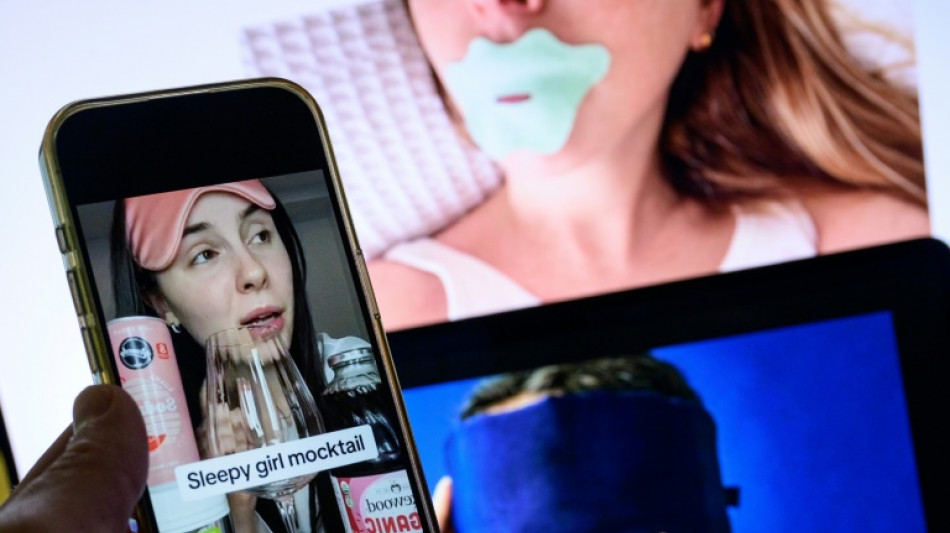
-
 North Korea's Kim shuns South but could 'get along' with US
North Korea's Kim shuns South but could 'get along' with US
-
Spurs win 10th straight, Pistons silence Thunder in battle of NBA's best
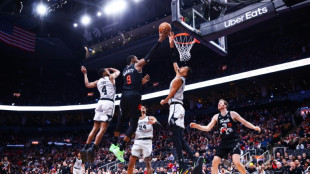
-
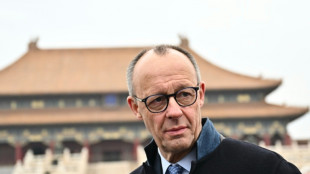 Germany's Merz visits China AI hub hoping for business deals
Germany's Merz visits China AI hub hoping for business deals
-
Post-uprising polls won't shake Nepal's delicate India-China balance
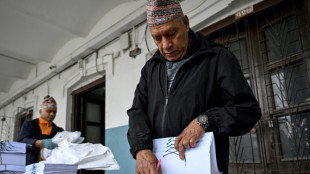
-
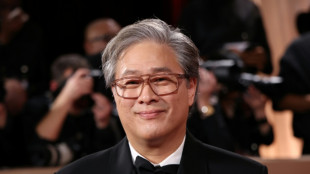 S.Korea's Park Chan-wook to head Cannes festival jury
S.Korea's Park Chan-wook to head Cannes festival jury
-
Australian ex-PM says 'more important than ever' to ditch UK monarchy
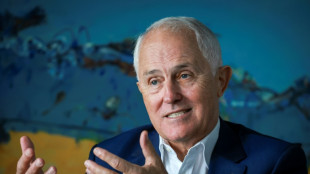
-
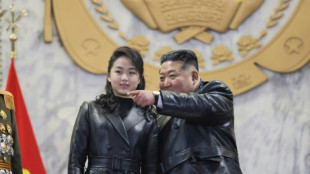 Dressed for succession? Kim Jong Un, daughter fuel speculation with matching coats
Dressed for succession? Kim Jong Un, daughter fuel speculation with matching coats
-
US-Ukraine talks to open in Geneva after overnight Russian strikes

-
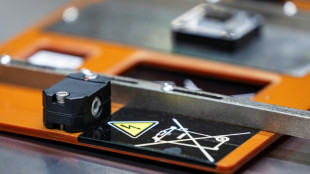 Export ban sparks rush to process lithium in Zimbabwe
Export ban sparks rush to process lithium in Zimbabwe
-
Pakistani sculptor turns scrap into colossal metal artworks
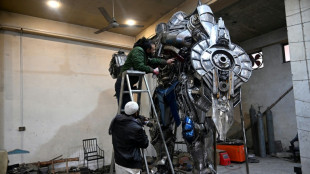
-
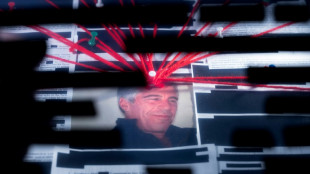 Epstein files reveal links to cash, women, power in Africa
Epstein files reveal links to cash, women, power in Africa
-
Where are Southeast Asia's data centres?

-
 Where AI lives: Southeast Asia's data centre boom
Where AI lives: Southeast Asia's data centre boom
-
Seoul hits fresh record on mixed day for Asia markets

-
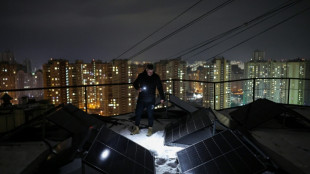 Kyiv residents pool together for solar panels and batteries amid Russian strikes
Kyiv residents pool together for solar panels and batteries amid Russian strikes
-
North Korea's Kim says could 'get along' with US but shuns South

-
 Cuba kills four on US-registered speedboat trying to 'infiltrate'
Cuba kills four on US-registered speedboat trying to 'infiltrate'
-
UK Labour party threatened by hard-right, leftists in heartland
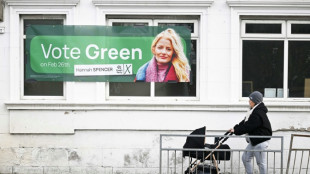
-
 Australian PM sorry after saying sexual assault survivor 'difficult'
Australian PM sorry after saying sexual assault survivor 'difficult'
-
Kim Jong Un spurns olive branch from 'hostile' South Korea
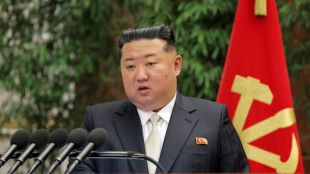
-
 DR Congo sanctuary resists bloody forest sell-off
DR Congo sanctuary resists bloody forest sell-off
-
North Korea looking to replicate youth success at Women's Asian Cup
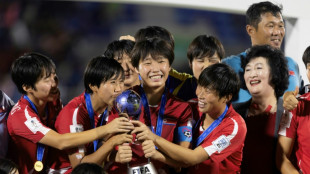
-
 Deal or no deal: What's the state of Trump's tariffs?
Deal or no deal: What's the state of Trump's tariffs?
-
Hillary Clinton to testify in US House panel's Epstein probe

-
 African migrants won legal protections - then Trump deported them
African migrants won legal protections - then Trump deported them
-
US women's ice hockey captain responds to 'distasteful' Trump remark
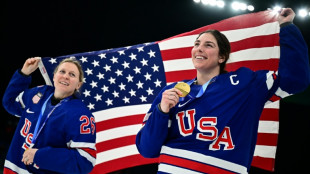
-
 US presses missile issue as new Iran talks to open in Geneva
US presses missile issue as new Iran talks to open in Geneva
-
US government accused of major 'cover-up' over Trump sex abuse claims
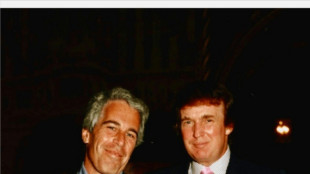
-
 US eases Cuba oil embargo but demands 'dramatic' change
US eases Cuba oil embargo but demands 'dramatic' change
-
IMF urges US to work with partners to ease trade restrictions
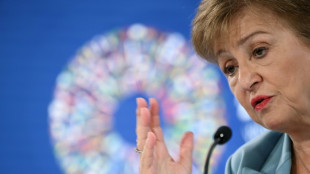
-
 Brumbies not getting carried away by emphatic Super Rugby start
Brumbies not getting carried away by emphatic Super Rugby start
-
Cuba coast guard kills four on US-registered speedboat

-
 Juve lick wounds after painful Champions League exit
Juve lick wounds after painful Champions League exit
-
Real Madrid victory for 'everyone against racism': Tchouameni

-
 Wallabies skipper Wilson back from injury in clash of heavyweight coaches
Wallabies skipper Wilson back from injury in clash of heavyweight coaches
-
PSG coach Luis Enrique calls on team to raise their game in Champions League last 16

-
 Nvidia smashes forecasts with record quarter as AI boom rolls on
Nvidia smashes forecasts with record quarter as AI boom rolls on
-
Vinicius seals Real Champions League progress as PSG edge out Monaco

-
 Galatasaray survive Juve scare to squeeze into Champions League last 16
Galatasaray survive Juve scare to squeeze into Champions League last 16
-
PSG survive Monaco scare to reach Champions League last 16

-
 Vinicius hits winner as Real Madrid eliminate Benfica after racism row
Vinicius hits winner as Real Madrid eliminate Benfica after racism row
-
Harden fractures thumb in blow to in-form Cavaliers
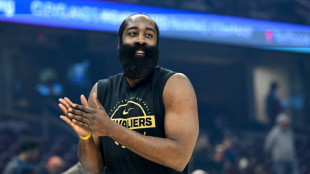
-
 Hope fades in search for missing after Brazil rains kill 46
Hope fades in search for missing after Brazil rains kill 46
-
Trump, Zelensky speak before Ukraine-US talks in Geneva

-
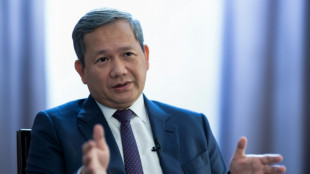 Scam centres 'destroying' Cambodia's economy, PM tells AFP
Scam centres 'destroying' Cambodia's economy, PM tells AFP
-
Last-gasp Atalanta eliminate Dortmund to reach Champions League last 16

-
 Iran negotiators arrive in Geneva for high-stakes US talks
Iran negotiators arrive in Geneva for high-stakes US talks
-
Antonio Tejero, leader of Spain's failed 1981 coup, dies at 93
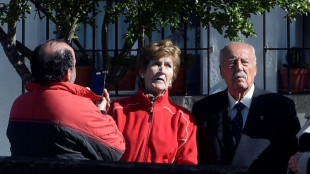
-
 Hakimi, set to face trial for rape, in PSG team for Champions League game
Hakimi, set to face trial for rape, in PSG team for Champions League game
-
Eleven men lured into Russia war returned to South Africa


Dangerous dreams: Inside internet's 'sleepmaxxing' craze
From mouth taping to rope-assisted neck swinging, a viral social media trend is promoting extreme bedtime routines that claim to deliver perfect sleep -- despite scant medical evidence and potential safety risks.
Influencers on platforms including TikTok and X are fueling a growing wellness obsession popularly known as "sleepmaxxing," a catch-all term for activities and products aimed at optimizing sleep quality.
The explosive rise of the trend -- generating tens of millions of posts -- underscores social media's power to legitimize unproven health practices, particularly as tech platforms scale back content moderation.
One so-called insomnia cure involves people hanging by their necks with ropes or belts and swinging their bodies in the air.
"Those who try it claim their sleep problems have significantly improved," said one clip on X that racked up more than 11 million views.
Experts have raised alarm about the trick, following a Chinese state broadcaster's report that attributed at least one fatality in China last year to a similar "neck hanging" routine.
Such sleepmaxxing techniques are "ridiculous, potentially harmful, and evidence-free," Timothy Caulfield, a misinformation expert from the University of Alberta in Canada, told AFP.
"It is a good example of how social media can normalize the absurd."
Another popular practice is taping of the mouth for sleep, promoted as a way to encourage nasal breathing. Influencers claim it offers broad benefits, from better sleep and improved oral health to reduced snoring.
But a report from George Washington University found that most of these claims were not supported by medical research.
Experts have also warned the practice could be dangerous, particularly for those suffering from sleep apnea, a condition that disrupts breathing during sleep.
Other unfounded tricks touted by sleepmaxxing influencers include wearing blue- or red-tinted glasses, using weighted blankets, and eating two kiwis just before bed.
- 'Damaging' -
"My concern with the 'sleepmaxxing' trend -- particularly as it's presented on platforms like TikTok -- is that much of the advice being shared can be actively unhelpful, even damaging, for people struggling with real sleep issues," Kathryn Pinkham, a Britain-based insomnia specialist, told AFP.
"While some of these tips might be harmless for people who generally sleep well, they can increase pressure and anxiety for those dealing with chronic insomnia or other persistent sleep problems."
While sound and sufficient sleep is considered a cornerstone of good health, experts warn that the trend may be contributing to orthosomnia, an obsessive preoccupation with achieving perfect sleep.
"The pressure to get perfect sleep is embedded in the sleepmaxxing culture," said Eric Zhou of Harvard Medical School.
"While prioritizing restful sleep is commendable, setting perfection as your goal is problematic. Even good sleepers vary from night to night."
Pinkham added that poor sleep was often fuelled by the "anxiety to fix it," a fact largely unacknowledged by sleepmaxxing influencers.
"The more we try to control sleep with hacks or rigid routines, the more vigilant and stressed we become -- paradoxically making sleep harder," Pinkham said.
- Beauty over health -
Many sleepmaxxing posts focus on enhancing physical appearance rather than improving health, reflecting an overlap with "looksmaxxing" –- another online trend that encourages unproven and sometimes dangerous techniques to boost sexual appeal.
Some sleepmaxxing influencers have sought to profit from the trend's growing popularity, promoting products such as mouth tapes, sleep-enhancing drink powders, and "sleepmax gummies" containing melatonin.
That may be in violation of legal norms in some countries like Britain, where melatonin is available only as a prescription drug.
The American Academy of Sleep Medicine has recommended against using melatonin to treat insomnia in adults, citing inconsistent medical evidence regarding its effectiveness.
Some medical experts also caution about the impact of the placebo effect on insomnia patients using sleep medication -- when people report real improvement after taking a fake or nonexistent treatment because of their beliefs.
"Many of these tips come from non-experts and aren't grounded in clinical evidence," said Pinkham.
"For people with genuine sleep issues, this kind of advice often adds pressure rather than relief."
burs-ac/mlm
P.M.Smith--AMWN
